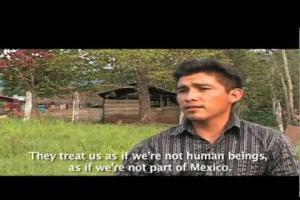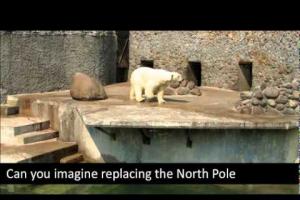Short documentary video by Global Justice Ecology Project
In March, 2011, Global Justice Ecology Project traveled to the village of Amador Hernandez, within the Montes Azules Biosphere Reserve, deep in the Lacandon Jungle of Chiapas, Mexico, to investigate how climate policies such as REDD are impacting the local population. This is what they found...
Mexico
Other information
26 March 2011
Bulletin articles
29 April 2010
The concept of protected areas, born in the United States in the nineteenth century as an idea of conservation by establishing “national parks,” was part of the colonization of the “Wild West” and, in many cases served as an instrument to appropriate indigenous peoples’ territory, handing it over to the States, research centres or corporate interests. Although an international organization such as the International Union for the Conservation of Nature (IUCN) has acknowledged that when establishing protected areas, indigenous peo
Other information
27 February 2010
What follows is a communiqué from the Latin American Network against Monoculture Tree Plantations (RECOMA) reporting on the violent situation that local communities and Indigenous Peoples of the Lacandona forest in Chiapas are presently going through.
“Appeal to international solidarity to protect the Lacandona Forest in Chiapas (Mexico), February 2010.
Bulletin articles
30 December 2009
A full 41% of the Sierra Madre region in the Mexican state of Chiapas – 227,000 square kilometres of land, equivalent to one half of the whole of Central America – has been turned over to Mexican and foreign corporations through mining concessions. Mining companies from Canada, the United States and Australia extract gold and silver from this mineral-rich region with the consent and protection of governments and the backing of free trade agreements.
Bulletin articles
30 July 2009
Since 2004 the Mexican government has been promoting the expansion of oil palm plantations. Presently there are 9 oil extraction plants in four states, 6 of which are located in Chiapas, the main palm oil producing state in Mexico.
Bulletin articles
25 November 2008
The Italo-Argentine mining company TERNIUM is planning to mine for iron minerals in nearly 2,000 hectares of tropical forest in the Municipality of Coahuayana in the State of Michoacán (south-western Mexico). Among other negative impacts, this activity will leave the whole Municipality (15 thousand inhabitants) without water.
Other information
26 October 2008
The organization Maderas del Pueblo del Sureste, A.C. reported in a recently issued communiqué that on 3 October, a brutal police operation took place, violating the most basic human, individual and collective rights, involving the federal and state police, against the indigenous and peasant Tojolabal inhabitants of the Miguel Hidalgo community, Municipality of Trinitaria, Chaipas. Since 7 September, this community had been managing the Maya archaeological and ceremonial site of Chinkultic.
Bulletin articles
16 October 2007
Between 8 and 13 October, fisher-folk organizations, artisanal gatherers, environmentalists and academics from 10 Latin American counties organized in Redmanglar International, met in the locality of Cuyutlan, State of Colima, Mexico.
During a whole week of work, it was reported that a policy for appropriation and use of coastal and marine spaces is being reaffirmed and strengthened worldwide, placing the economic interests of a few before ecosystem conservation sustaining the life and fundamental rights of local communities.
Bulletin articles
17 September 2007
Three years ago, in response to an article I wrote about the pulp industry's involvement in research into genetically modified (GM) trees, I received an email from the FSC Secretariat in Oaxaca, Mexico.
"I assume you are aware," read the email, "that the only forest certification scheme that has a clear position against GM trees is the FSC scheme, and that this issue is particularly relevant to large plantation companies that have the resources to invest in this kind of research and development."
Bulletin articles
5 June 2006
Many letters have been sent from abroad to the Government of Ecuador in the framework of the campaign to support Ecuadorian social and indigenous organizations that are endeavouring to avoid the adoption in that country of a legislation that will imply the expansion of large scale monoculture tree plantations (see the article on Ecuador in this bulletin).
Bulletin articles
6 May 2006
Bertolt Brecht wrote from exile: "Truly, I live in dark times./ The word ingénue is senseless. An unlined forehead / reveals insensitivity. He who laughs / has not yet heard the terrible news / it has not yet reached him. What times are these when a talk about trees is almost a crime because it implies silence on so many wrongs?”


